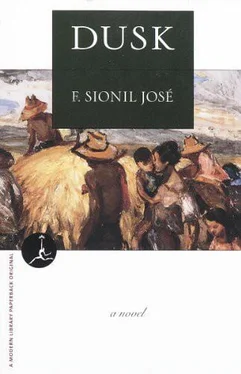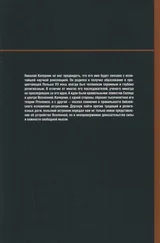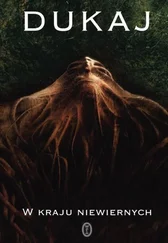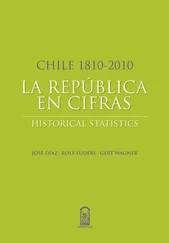From under the house, Ba-ac gathered the golden sheaves of tobacco hung to dry. They had been harvested two weeks before and some of the leaves were still greenish and not ready for smoking. The municipio was going to buy it all, but he would not give them that privilege now; he would need a lot to smoke, to chew, and to barter.
Then they were ready; a big pot of rice had been cooked and coffee had been brewed from roasted corn and flavored with thick molasses. Toward the cast, still no glimmer of sunrise. They would not wait for daylight.
Why should we be rooted here, in a land which is not ours? All over the north, in the past, men had fled to the forest. Free men, they cleared the land and started anew, well beyond the claws of the Guardia Civil, the friars and their fawning acolytes. No less a man than old Padre Jose had spoken about them when they had pressed beyond Tirad, down the fertile valley of Nueva Segovia. They were everywhere, with new names, new lives. They could start anew, too.
Not me, Istak told himself. If he stayed he could perhaps explain — hold back the storm that would descend and engulf them all. Explain he would, not with words but with his faith in the justness of God.
“I will be safe, Mother,” he assured Mayang, standing by the lead cart which An-no would drive. Behind them, tethered with maguey twine, were the work animals, a carabao with a calf and two cows. In Po-on, they had the most, but where they were going they would all be equal. Six carts altogether, with children wrapped in coarse blankets, for it was cool. Underneath the carts and behind them stoves and cooking pots were carefully tied. Six carts, six families — how could they travel without being seen? If they went singly, they would fall prey to robbers who ambushed in the foothills and isolated distances. If they went together, they could easily be tracked, questioned, found out; now, more than ever, they needed cunning, which, perhaps, Istak would be able to give them.
“I will follow, Mother,” he reiterated. “It will not be difficult to trace you. I just want to be sure, to know what will happen to Po-on.”
“Don’t look back, then,” Mayang said, her voice sad. “Keep us in your mind.”
Istak walked with them to the edge of the village, well beyond the bamboo grove, down the gully to the open fields, the carts in single file, their solid wooden wheels creaking. They must be oiled, Istak reminded his brother. In the darkness, he could make out the familiar faces, the nephews and nieces, the cousins he had grown up with. And as Dalin’s cart passed — the seventh and last, she reached out and held his hand briefly. A dull ache coursed through him, the warmth of her hand filling him with warmth as well; so young and already a widow. Would she be able to show them the way? And what would happen to her? To them?
The road to Vigan was well traveled. Ba-ac and his brothers had gone to the capital when they were conscripted to work on the governor’s mansion and on the road to the south. They would not take that road — in every town they would be stopped by the Guardia, who would have been warned by telegraph. If they were not detained, their chickens, even their work animals would be taken.
But time was in their favor. The rivers were dry and the trails would no longer be rivulets of mud. They would skirt the foothills of the Cordilleras through land which they were familiar with. In the day, they would rest while the men scouted what lay ahead and when night came, they would be on their way again. There were enough hollows, folds in the hills and bamboo groves to hide them. They had bows and arrows tipped with iron, and their bolos were sharp. If they were lucky, they could even have wild boar or deer meat.
Daylight now. The sun rode the heavens and banished the dew that had covered the grass, glistening like many jewels. They were near the Cabugaw foothills, where the tall grass still grew lush and green on the dikes. They had traveled slowly on trails not often used. The carabao hooves had also dug a rhythm of hollows on the ground, and in places where the runners of sleds had cut, the ridges were high and it was difficult for the carts to roll smoothly and straight.
Ba-ac in the lead cart saw it behind, the cloud of dust in the first flush of morning far down to the horizon — the Guardia finally coming to Po-on.
The bend of the river was to their left — actually an expanse of sandy loam, boulders, and more scraggly growths of grass and stunted camachile trees no taller than a man. It was an act of God, Istak would have said, that they were there at that very moment. “Hurry! Hurry!” the old man shouted at the carts behind him. “Down the gully, all of you. Behind the grass, hide where you cannot be seen. And the animals — keep them quiet. Unhitch the carts!”
He was a leader, the repository of wisdom, though he had but one arm. They were all afraid even if they had done nothing. They would protect Ba-ac, too, because they were together, related by blood. Now, the morning sun poured on them. They waited, the mothers shushing their children, the men silently looking at one another. The dust cloud raised by the horses drew nearer and though they could not hear them, they could see the cloud disappear; they were crossing farther up the river and in a while, the dust cloud appeared again, a wraith on the horizon.
The animals did not make a sound. A long, long wait — then it came, the crack of a gun echoing across the fields. Ba-ac went up the incline and peered at the distance.
Toward the east, beyond the thin line of bamboo and trees, a wisp of smoke plumed up. The smoke thickened and soon the trail of dust again, going back toward them. In the distance, the flames shot up with spirals of gray smoke. Po-on was burning! They did not even leave the houses for the next tenants to move into. Years of sweat had been poured into that village, the roofs they shaped, the posts they dragged from the forests. Everything was in that pillar of smoke reaching up to the cloudless sky. The men cursed, the women wept silently.
“I will go back,” Dalin said resolutely after some time. “They are not after me, they have nothing to blame me for or accuse me of. I am not from Po-on …”
“What can you do even if you went back?” An-no asked. “If they burned Po-on, surely, they must have killed Istak, too, or taken him. They will catch you, torture you, and then they will know where we are … and where we are going.”
“You don’t know what I have gone through to be alive,” the young woman said, looking straight at the man who, she knew, wanted her to stay, not just for her safety, but for himself. She hitched her cart. “Do not go away. I will return here,” she told Ba-ac.
They are gone. Istak turned over the words, feeling their bite. He glanced around at the houses, empty now and shrouded by night. How would it all look when daylight came — this ghost of a village, without the voices of children, the grunt of animals? Even now, he could imagine his mother’s voice summoning the pigs to the trough, “Riii — say, Riii — say”; Ba-ac calling for the young calf to come home. “Ooooowah-ngek … Ooooowah-ngek …” In their hurry, they must have left behind many precious things. Not all the chickens were in the coops, the firewood, the sheaves of tobacco were still under the house, the old pots, the seeds of mango, of tomato, and eggplant were still hanging in the caves to dry. Even this wooden mortar on which he sat, its smooth hollow recessed deep by the constant pounding of pestles. As a boy he had helped his mother pound rice in it after the stalks were first threshed in a long wooden trough hewn from solid wood. The pestle had callused his hand. He had loved the rhythmic sound of the pounding if there were three of them at the mortar, the thuds following one another and echoing in the quiet. It was not the grain which he had enjoyed pounding, though; it was the boiled bananas mixed with young coconut meat and cakes of cane sugar. The bananas became pulpy and sticky, they sucked at the pestle, and part of the skill in pounding was in the ability to withdraw the pestle quickly before the next came crashing down.
Читать дальше












